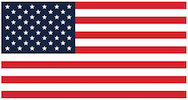What are Impeachable Offenses?
Summary: According to the Constitution, a President can be impeached for "Treason, Bribery, or other high Crimes and Misdemeanors". Treason and Bribery are clear. The definition of "high Crimes and Misdemeanors" was left intentionally vague by the founders but is generally considered to refer to misconduct or a violation of the public trust that is injurious to society. They are not limited to statutory violations (breaking regular laws).
A President often does things that people disagree with. But those actions are not normally something that can lead to impeachment. This leads us to an important question: for what specific actions can a President or Officer be impeached?
The basis for impeachment comes from the US Constitution. Article II, Sec. 4 states that:
"The President, Vice President and all civil Officers of the United States, shall be removed from Office on Impeachment for, and Conviction of, Treason, Bribery, or other high Crimes and Misdemeanors."
The crimes of Treason and Bribery are fairly straightforward. But what are "high Crimes and Misdemeanors"? The framers of the Constitution deliberately borrowed this phrase from English parliamentary law. It was first used in 1386 to impeach the King's Chancellor. Michael de le Pole, Earl of Suffolk. He broke a promise to parliament regarding improvements in the King's Estate and also failed to pay ransom money for the town of Ghent.
In the midst of Watergate, the Judiciary wrote a report on impeachment.[1] They stated:
'Two points emerge from the 400 years of English parliamentary experience with the phrase "high Crimes and Misdemeanors." First the particular allegations of misconduct alleged damage to the state in such forms as misapplication of funds, abuse of official power, neglect of duty, encroachment on Parliament¹s prerogatives, corruption, and betrayal of trust. Second, the phrase "high Crimes and Misdemeanors" was confined to parliamentary impeachments; it had no roots in the ordinary criminal law, and the particular allegations of misconduct under that heading were not necessarily limited to common law or statutory derelictions or crimes.'
The subject of impeachment was debated by the Founding Fathers during the Constitutional conventions. The Federalist Papers give rationale for many parts of the Constitution and are often used to interpret the intent of the framers.
In Federalist No. 65 [2], Alexander Hamilton described the subject of impeachment as:
"those offences which proceed from the misconduct of public men, or, in other words, from the abuse or violation of some public trust. They are of a nature which may with peculiar propriety be denominated POLITICAL, as they relate chiefly to injuries done immediately to the society itself"
James Iredell at the North Carolina Constitutional convention, argued that the President:
"The President must certainly be punishable for giving false information to the Senate. He is to regulate all intercourse with foreign powers, and it is his duty to impart to the Senate every material intelligence he receives. If it should appear that he has not given them full information, but has concealed important intelligence which he ought to have communicated, and by that means induced them to enter into measures injurious to their country, and which they would not have consented to had the true state of things been disclosed to them," [3]
The general message from interpreters of the Constitution is that impeachable offenses are not limited to specific violation of criminal statutes. The contitution was intentionally vague on this point to allow flexibility in prosecuting a President. Justice Joseph Story wrote in his Commentaries on the Constitution in 1833:
"Not but that crimes of a strictly legal character fall within the scope of the power; but that it has a more enlarged operation, and reaches, what are aptly termed political offenses, growing out of personal misconduct or gross neglect, or usurpation, or habitual disregard of the public interests, various in their character, and so indefinable in their actual involutions, that it is almost impossible to provide systematically for them by positive law."
A more recent writing reinforces the vague definition of an impeachable offense. In a House Judiciary sub-committee panel discussion on the Clinton impeachment, Rep. Charles Canaday, (R) Florida wrote [4]:
"The House has never in any impeachment inquiry or proceeding adopted either a comprehensive definition of high crimes and misdemeanors or a catalogue of offenses that are impeachable. Instead, the House has dealt with the misconduct of federal officials on a case by case basis..."
Back in 1970, Rep. Gerald R. Ford defined impeachable offenses as "whatever a majority of the House of Representatives considers it to be at a given moment in history." That is probably a reasonable definition, consistent with the intentions of the Founding Fathers.
[1] Constitutional Grounds for Presidential Impeachment, House Judiciary Committee, 1974 http://www.washingtonpost.com/wp-srv/politics/special/clinton/stories/watergatedoc.htm
[2] Federalist Papers #65 by Alexander Hamilton http://avalon.law.yale.edu/18th_century/fed65.asp
[3] "Debate in North Carolina Ratifying Convention" 24--25, 28 July 1788, http://press-pubs.uchicago.edu/founders/documents/a1_2_5s13.html
[4] House Judiciary Sub-committee 1998 discussing "what is an impeachable offense" as it relates to Clinton.
https://www.gpo.gov/fdsys/pkg/GPO-CDOC-106sdoc3/pdf/GPO-CDOC-106sdoc3-20.pdf
"Testimony of Michael J. Gerhardt before the Judiciary Committee", 1998
